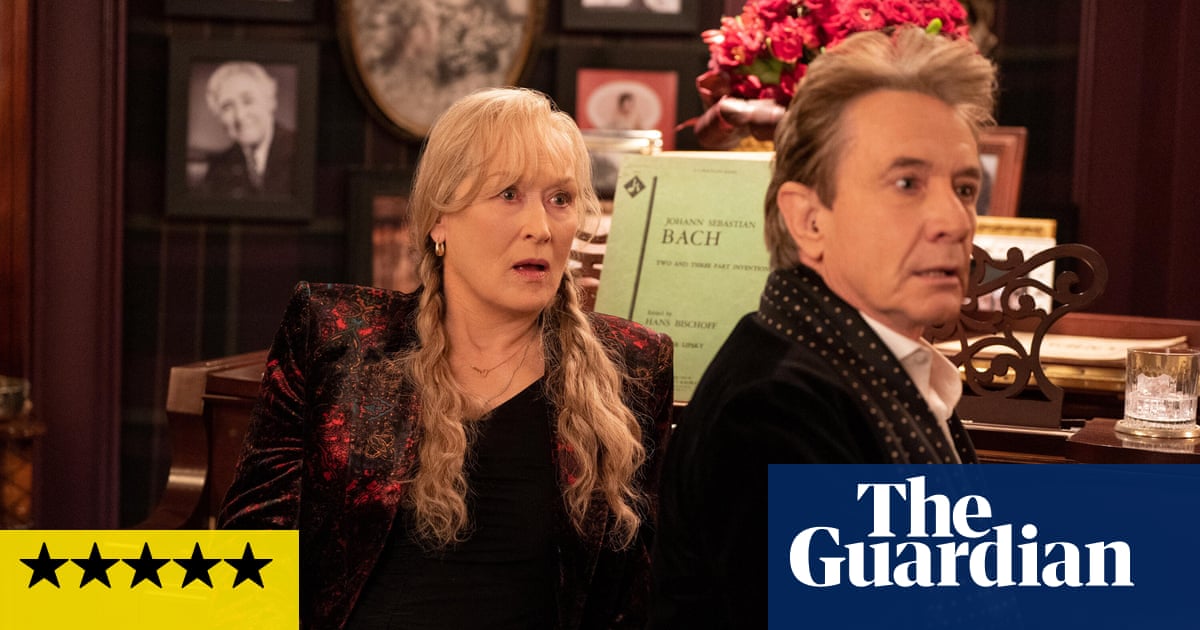
here is another reality in which the third season of Aziz Ansari’s sorta-sitcom Master of None looks very different from the one now streaming on Netflix. In this alternate timeline, Ansari was not personally caught up in the #MeToo fallout and the Covid-19 pandemic never happened; thus it is possible for season three to pick up where season two left off: a lovelorn Dev whimsically riding his Italian neo-realist bicycle to buzzy food spots, making bittersweet remarks about millennial dating as he goes.
However, the events mentioned above did happen, and Master of None is a different show as a result. In January 2018, the now defunct babe.net website reported a claim by a woman that she had felt “violated” after a sexual encounter with Ansari (he denied any wrongdoing, though he said that he had taken the claims “to heart”, later adding in a standup show that he felt “terrible that this person felt this way”). When the allegation was made, Master of None had already picked up a Golden Globe and two Emmys, including a history-making one for Lena Waithe, who became the first Black woman to win the Emmy for outstanding writing for a comedy series, for an episode partly based on her experience of coming out. This was the platform from which Waithe launched a stellar screenwriting career that now includes TV series (The Chi; Them) and the 2019 movie Queen & Slim. Yet Master of None remained very much Ansari’s vehicle.
Ansari had already sounded unsure about a third series back in 2017, telling New York magazine: “I’ve got to get married or have a kid or something. I don’t have anything else to say about being a young guy being single in New York.” However, following the incident, the show’s future seemed in doubt. Three years on, it returns – not merely matured, but with a different perspective entirely. Dev, our erstwhile romcom lead, still appears in a handful of scenes, but he’s relegated to a supporting role. His romantic troubles serve mainly to deepen our understanding of the relationship between Denise (Waithe) and the series’ other protagonist, her wife, Alicia, played by Star Wars and Small Axe star Naomi Ackie.
Pivoting to Denise was a safe bet, given the rising profile of Waithe, who is credited as Ansari’s co-writer on the entire season. What must have seemed more risky is a 52-minute episode devoted entirely to the new character. Ackie is the only regular cast-member to appear, her face almost always in frame, and often in closeup, as Alicia negotiates the emotional turmoil of undergoing IVF as a single lesbian woman living thousands of miles from home. It’s a gamble that pays off, though, thanks to Ackie’s capacity to carry us along on every part of this emotional journey.
All this is a strong indication that a show once so firmly rooted in the personal experience of Ansari – and, to a lesser extent his co-creator, Alan Yang – has become truly collaborative. Ansari directs every episode, but the collaboration is evident in big ways and small, from the season’s overarching marriage and divorce storyline, seemingly drawn from Waithe’s personal life, to the fact that Ackie uses her native London accent for the role, and is credited as an exec producer.
The use of a single key location – the couple’s handsomely appointed marital home – may be mainly due to pandemic-related practical restrictions, but it works, too. It allows for stillness and creates space for dialogue that’s emotionally acute as well as witty. A riff on the ignominy of switching back to a flip-phone plays like vintage Master of None, even if it is now delivered by Denise, instead of Dev.
What does feel like a radical departure is seeing the slower, observational pace of Ansari’s favourite 70s American auteurs lovingly applied to the ordinary lives of two queer Black women. These kinds of semi-autobiographical, standup-about-town series have – from their origins in Woody Allen’s Manhattan to their apex in Louis CK’s Louie – perhaps tended to indulge the male viewpoint to solipsistic extremes. Whenever auteurs are then involved with real-life incidents with women, the oft-repeated advice to “separate the art from the artist” rings especially hollow.
For conflicted comedy fans the solution might be to stop worrying and start watching. These 192 minutes speak more directly to the shifting status of women on screen than any public statement could.












